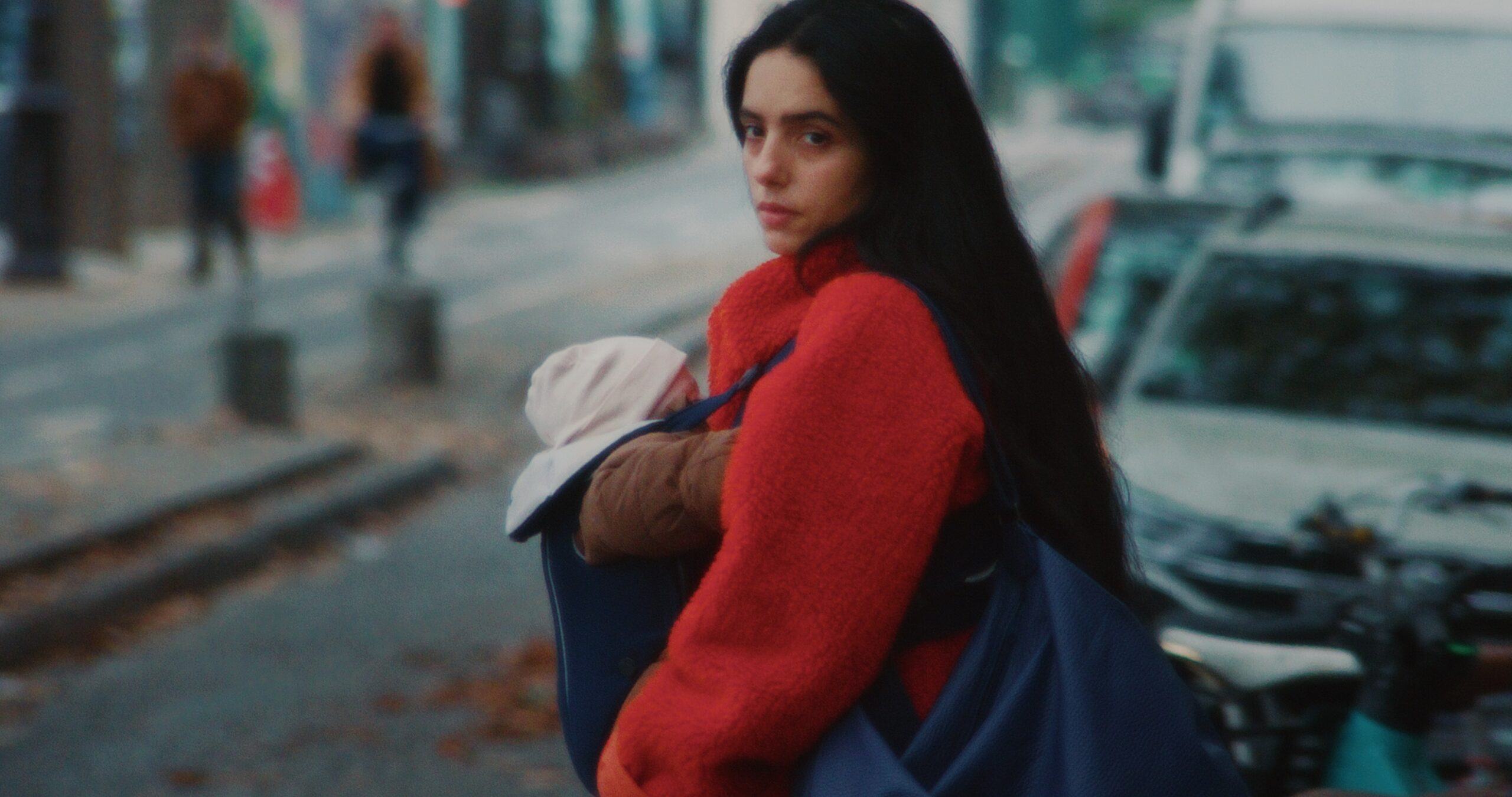The Rapture
Le Ravissement
VERDICT: A moving Hafsia Herzi stars in a first French feature about a midwife who takes possession of her bestie’s baby, throwing friendship and motherhood into question.
In this promising feature debut, French writer-director Iris Kaltenbäck has turned what sounds like a high-concept pitch for a Hollywood comedy — a girl tries to pass off her best friend’s baby as her own — into a thought-provoking, emotionally involving look at both motherhood and womanhood. Carried by two excellent leads, The Rapture (Le Ravissement) premiered in Cannes’ Critics Week, where it will hopefully receive the attention it deserves.
The always-watchable Hafsia Herzi (The Secret of the Grain, Mektoub, My Love) stars as Lydia, a hardworking midwife in a Parisian public hospital who, after delivering another successful baby, arrives home to find her long-time boyfriend waiting to dump her. Never one to express her feelings aloud, she doesn’t say a word about what happened that night at the birthday party of her best friend, Salomé (Nina Meurisse), even when the latter surprisingly discovers she’s pregnant.
Lydia seems to take the news about Salomé well enough, but in reality she’s burning inside. Herzi’s compelling performance is a mix of compassion and hidden rage, reflected in the world-weary look of a character who could definitely use a little more sleep and tender loving care. Riding the bus home from the hospital after a long shift, she passes out and is later awakened by the driver, Milos (Alexis Manenti), who, like her, is a lost soul adrift in the city of lights.
The two hit it off and hook up for a one-night stand, but Milos doesn’t want to take things further. They leave it like that, until Salomé gives birth nine months later and, because Lydia’s a bit jealous of her friend and also desperate, whether consciously or not, to have her own child, tells Milos that the baby is theirs. It seems shocking at first and also far-fetched, yet Kaltenbäck — who told a similar story in her 2015 short, A Visit from the Stork — makes the scenario feel real and psychologically plausible.
Much of The Rapture involves Lydia trying, in increasingly risky ways, to keep the lie going. She’s confronted by Milos, who asks to do a paternity test, and she ruefully manages to fake the results. Initially against the whole thing, Milos soon warms up to fatherhood and the idea of founding a family. But Lydia keeps her distance, mostly because she has to — after all, the baby still isn’t hers — but also because she remains too emotionally cut off from others.
Things come to a head during one of the most uncomfortable family meal scenes in recent memory, when Lydia shows up at Milos’ apartment with the baby and is surprised to find his entire Serbian family waiting there. It seems like she’ll break at that point and tell the truth, but the lunch goes on anyway, leaving her to deal with the consquences. Meanwhile, Salomé, who’s still getting over post-partum depression, is becoming increasingly put off by her friend’s odd behavior, questioning why she insists on babysitting for long hours without giving any news.
It’s clear that the ruse won’t last forever, and we feel Lydia’s pain and regret as much as we condemn her actions. Kaltenbäck presents her as a woman who never wanted to harm anyone and is only really harming herself — who just wants to live a normal life, like the people she sees outside the bus she rides to work each day. Milos, likewise, watches the world go by out the window, and The Rapture quite movingly turns into a love story about two lonely city employees brought together by an unusual crime.
The director and cinematographer Marine Atlan (Summer Scars) capture that loneliness with grainy images drenched in rain or covered in shadows, turning Paris into the gloomy backdrop of a drama. The sun rarely shines in The Rapture, though it has its luminous moments — most memorably in the long and unbearably suspenseful scene where Lydia delivers Salomé’s baby during a complicated birth. All of the film’s tension, and the questions it poses about parenting and friendship, come together during a few breathless minutes, leaving us wondering not only whether the baby will survive, but who really wants to be the mother.
Director, screenplay: Iris Kaltenbäck
Cast: Hafsia Herzi, Alexis Manenti, Nina Meurisse, Younès Boucif
Producers: Alice Bloch, Thierry de Clermont-Tonnerre
Cinematography: Marine Atlan
Production design: Anne Le Mouël
Editing: Suzana Pedro, Pierre Deschamps
Music: Alexandre de la Baume
Production companies: Mact Productions (France), Marianne Productions (France)
World sales: Be for Films
Venue: Cannes Film Festival (Critics’ Week)
In French
97 minutes

